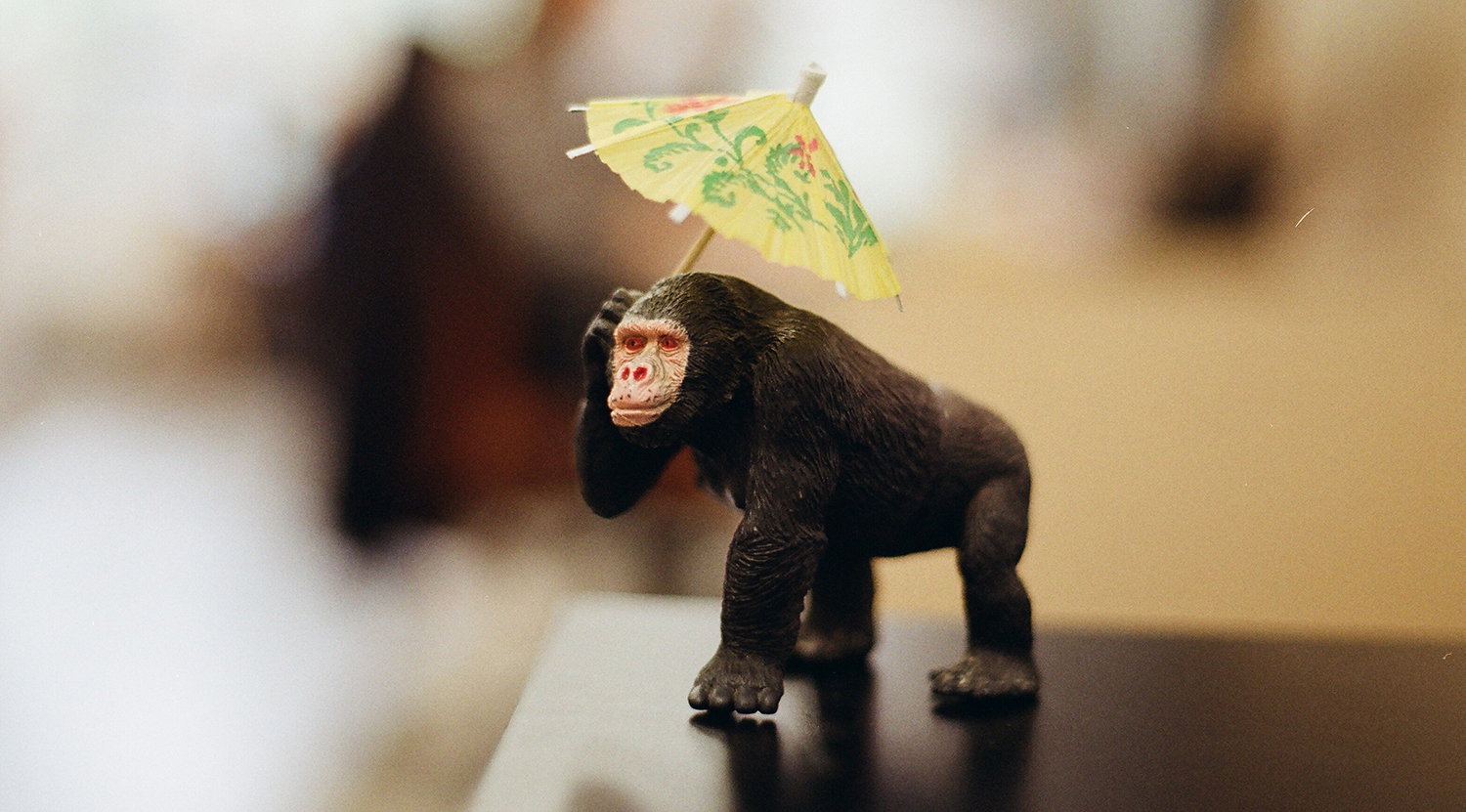New research suggests our fondness for altered mental states may be an inherited evolutionary need.
Most of the press releases I receive are requests for free advertising masquerading as news, destined for instant deletion. However, this week a release from the University of Birmingham arrived bearing a subject line that was impossible to ignore: “Dizzy apes give clues on human drive for mind-altering experiences”.
Curiosity piqued, I read it and sure enough, the contents were interesting and somewhat relevant to a bar industry readership, as well as an opportunity to post a funny video of a baby gorilla, so here we are.
Gorilla spinning on vine in Volcanoes National Park, Rwanda, Credit: University of Warwick/Kusini Safaris
Essentially, researchers have come to the conclusion that great apes deliberately spin themselves in order make themselves dizzy, a discovery that could provide clues about humans’ drive to seek altered mental states.
By studying videos of gorillas, chimpanzees, bonobos, and orangutans spinning on ropes and vines, researchers found that on average the primates revolved 5.5 times per episode of spinning, with the average speed 1.5 revolutions per second and the primates did this on average three times.
Publishing their findings today in Primates, researchers from the Universities of Birmingham and Warwick discovered that apes can spin while holding on a rope as fast as professional human dancers and circus artists, as well as Dervish Muslims who take part in whirling ceremonies to achieve a spiritual trance.
Dr Marcus Perlman, Lecturer in the Department of English Language and Linguistics of the University of Birmingham who co-led the research, commented: “Apes became noticeably dizzy in many of the videos, and they were likely to lose their balance and fall. This would indicate that the primates deliberately keep spinning, despite starting to feel the effects of dizziness, until they are unable to keep their balance any longer… Spinning is a way in which great apes can change their state of mind and, since these apes share with humans the tendency to create such experiences, our discovery offers the tantalising prospect that we’ve inherited this drive to seek altered mental states from our evolutionary ancestors.”
Dr Adriano Lameira, Associate Professor of Psychology at The University of Warwick who co-led the study, commented: “Every culture has found a way of evading reality through dedicated and special rituals, practices, or ceremonies. This human trait of seeking altered states is so universal, historically, and culturally, that it raises the intriguing possibility that this is something that has been potentially inherited from our evolutionary ancestors… If this was indeed the case, it would carry huge consequences on how we think about modern human cognition capacities and emotional needs…”
Previous studies which have attempted to understand the human urge for self-inducing dizziness focused on the use of substances such as alcohol or drugs, which may not have been available to human ancestors. Ropes and vines were however, and scientists believe this new study could be more relevant to explain the role of altered states on the evolution of the human mind.
In more practical terms, the next time you gently guide a weaving guest towards the door of your bar, you might reflect upon the idea that their unsteady state could be the result of an evolutionary need to experience an altered mind state, rather than simply over doing it on payday Friday. Or not. At least I gave you a funny gorilla video…
Science-inclined readers can download full research paper here: SpinningApes_preprint (1)
Featured image by Mirabelle Lemire.


